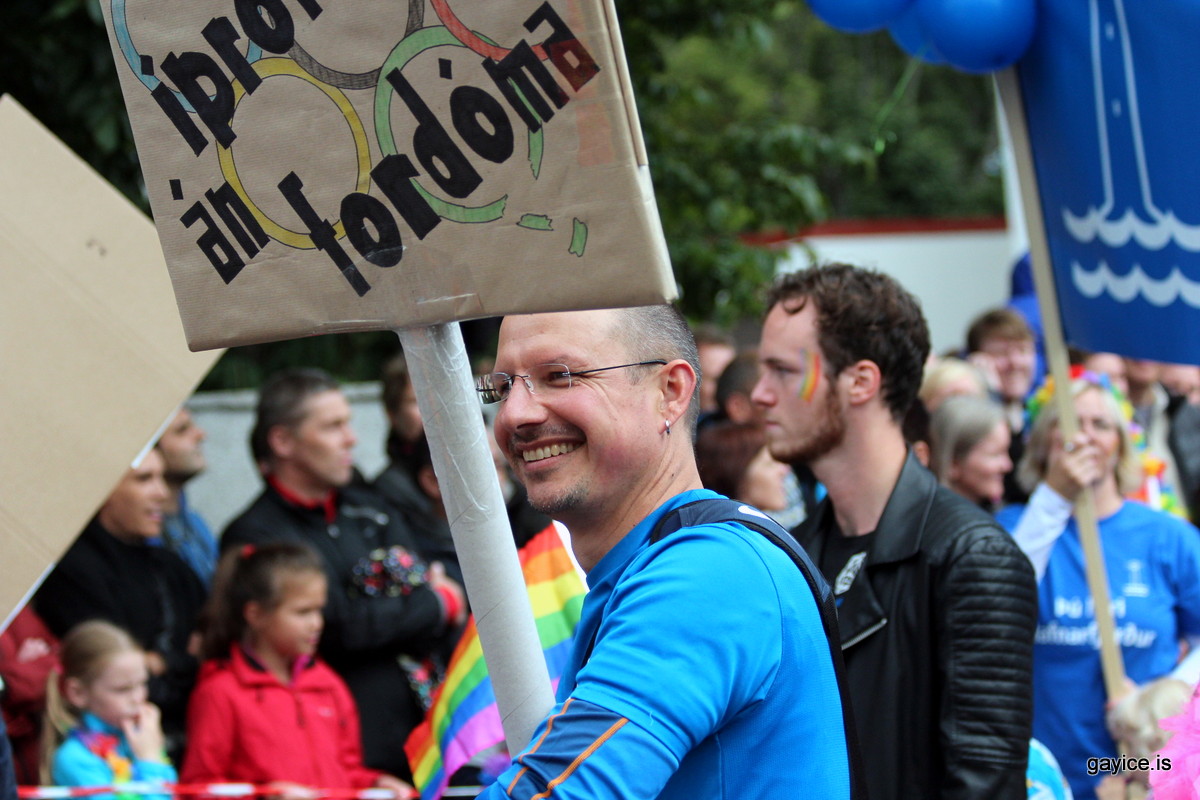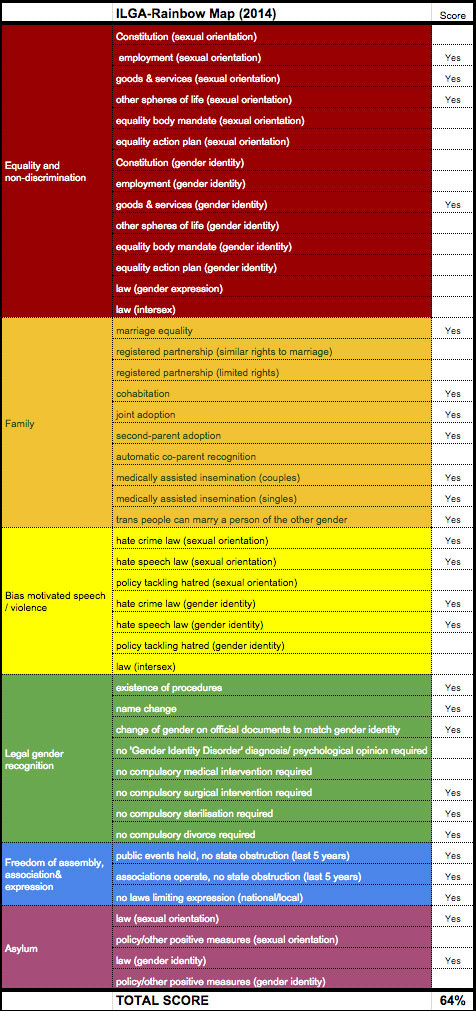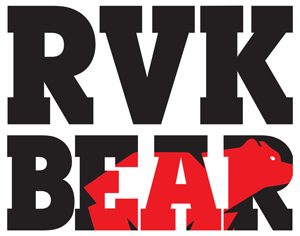
Iceland comes 8th on the 2014 ILGA-Europe Rainbow Map with the score of 64%. The ILGA map reflects the National legal and policy human rights situation of lesbian, gay, bisexual, trans and interest (LGBTI) people in Europe. UK is on top of the list scoring 82%, Belgium comes second with 78% and Spain is in third place with 73% score. Of the Scandinavian countries Norway is number 5 on the list and Sweden comes number seven.
Iceland´s drawback on the ILGA are on numerous topics and issues, mostly related to the recognition and protection of individuals based on gender identity, automatic co-parent recognition and lack of policy tackling hate speech.
The quality of loves of gays and lesbians has changed dramatically in the past few years with the 2010 milestone when Iceland´s Parliament voted unanimously approving same-sex marriage. The same does not apply to trans and inter-sex people.

Tackling hate speech needs attention
One of the low scores on the ILGA report has to do with hate speech and how it´s being tackled. The Article 233(a) of the General Penal Code is fairly clear on the topic but it hasn´t worked very well in the past. Is states that “Anyone who does by means of ridicule, calumniation, insult, threat or otherwise assault [a person or group of persons] on account of their nationality, colour, [race, religion or sexual inclination] shall be subject to fines or imprisonment for up to 2 years.”
The National Queer Organization, Samtökin '78, recently filed charges of hate speech against 10 individuals, for comments they made about gay and trans people
based on Article 233(a) . In 2006 Samtökin '78 filed charges against one of Iceland´s loudest ministers that had been bashing Gay people for years, but, unfortunately the case was dismissed.
Discrimination and prejudice are still alive and there is still a long way to go when it comes to making lives of LGBTI people better, securing them equal rights on all legal fronts. We may be on the top of a list but still, but in the end this is all about people and there is a need for improvements.
ILGA-Europe’s 2014 edition of its Rainbow Europe package shows that while the human rights of LGBTI people have undoubtedly gained great visibility across Europe, progress in terms of real legal, political and social changes vary considerably from one country to another, in large part depending on levels of societal acceptance, of political leadership and political will, as well as the strength of civil society in a given country.
FJ / Gayice.is

